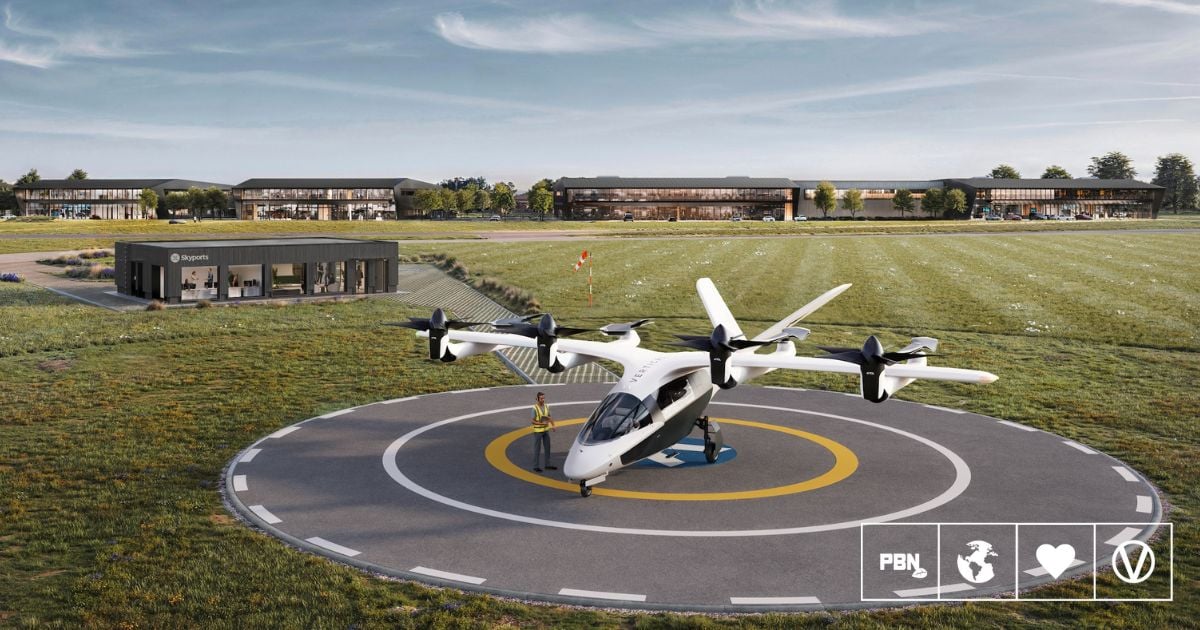The UK is set to build its first-ever ‘vertiport’ testbed for zero-emissions electric air taxis.
Read more: UK Airports See Soaring Demand For Vegan Food
Bicester Motion, a self-described “future mobility” estate in Oxfordshire, UK, and Skyports Infrastructure, industry leaders in advanced air mobility (AAM), previously submitted their vertiport project to local planning authority Cherwell District Council for review.
According to Bicester Motion, the now-approved vertiport will include a “compact” 160 square meter passenger terminal and will “play a significant role” in the development and deployment of electric, low-noise aviation nationwide in the coming years.
Skyports Infrastructure and Vertical Aerospace – which specifically pioneers zero-emissions aviation – recently unveiled the latest VX4 prototype. In terms of appearance, the futuristic design combines elements of both helicopters and airplanes and features four separate rotary blade engines facing upwards and swallow tail-type rear fins.
The electric vertical take-off and landing (eVTOL) vehicle completed its first tethered piloted flight in July and will be the first to fly at the new vertiport once complete. The VX4 can carry up to four passengers with a range of up to 100 miles.
Read more: Millions Of Lives At Risk From Extreme Heat In England, New Analysis Warns
Another step towards sustainable air travel
Formerly an RAF base, Bicester Motion was notably where the Air Force first flew the Halifax prototype L7244 in 1938. The vertiport will be adjacent to the existing general aviation grass runways, and Bicester Motion’s chief executive Daniel Geoghegan referred to the new project as a “significant moment,” both for the historic airfield and the future of aviation.
Bicester Motion and Skyports are developing the vertiport as part of the Advanced Mobility Ecosystem Consortium, which seeks to demonstrate the commercial and operational viability of new aircraft technologies and designs into existing and modified airspace.
Aviation emissions have doubled since the mid-1980s, and the industry contributes 2.5 percent of global CO2 emissions. Mile for mile, flying by traditional fossil-fueled aircraft is the single most damaging way to travel in terms of the climate crisis.
Construction of the vertiport will begin in the fall and will host a rigorous VX4 testing program, including demonstration flights, ground operations, and aircraft integration.
Read more: UK’s First Electric Airline Launches – And It Only Serves Plant-Based Meals

